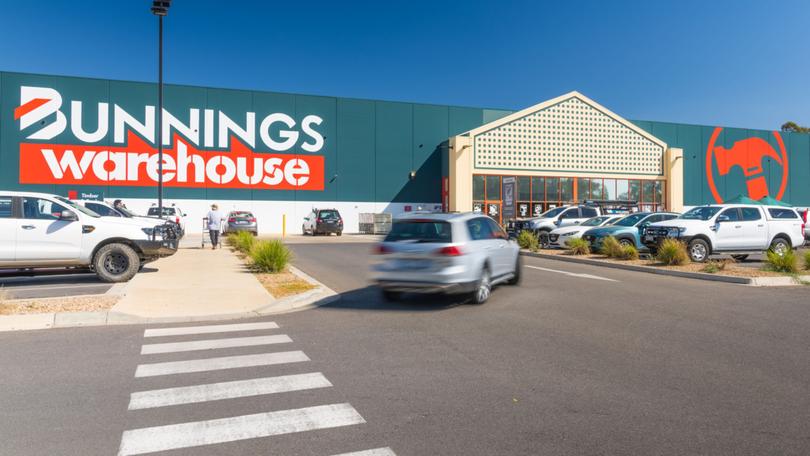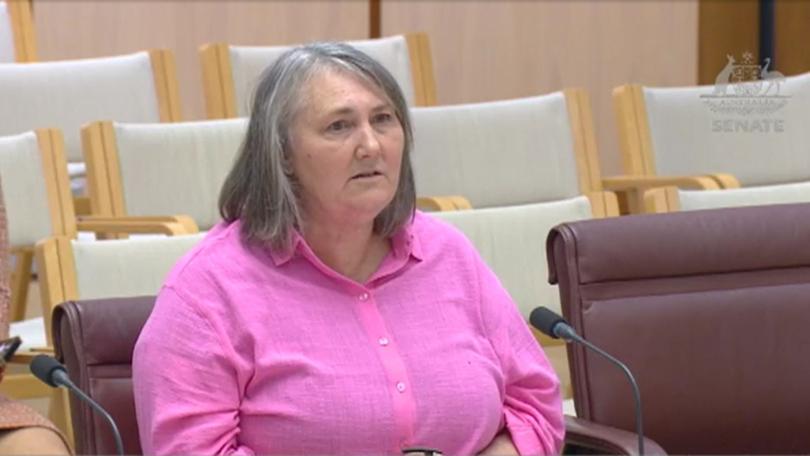Plant suppliers accuse Bunnings of unfair dealings and threatening behaviour over price increase requests
Plant suppliers have accused the hardware giant of poor and unfair dealings and trying to avoid delivering on its long-term “10 per cent off” price-match offer to customers.

Plant suppliers have accused hardware giant Bunnings of poor and unfair dealings and ordering specific products so it can avoid delivering on its long-term “10 per cent off” price-match offer to customers.
Growers told a Senate inquiry into supermarket prices on Thursday that Bunnings was no different to the big supermarkets in its dealings with suppliers, and had treated them as numbers, not people.
Tasmanian commercial production nursery Brocklands owner Karen Brock testified she and her husband felt “we were slaves to Bunnings”.
Sign up to The Nightly's newsletters.
Get the first look at the digital newspaper, curated daily stories and breaking headlines delivered to your inbox.
By continuing you agree to our Terms and Privacy Policy.“We were a mouse running around the hamster wheel, and no matter how fast you spun that wheel, you could not ever achieve the goal of making somebody happy in that environment,” she said. Brocklands stopped supplying Bunnings about seven years ago.
Bunnings is resisting calls to be included in the food and grocery code of conduct, arguing its diverse structure would make it difficult to be effectively applied. The code includes plants in its definition of groceries.
Industry body Greenlife Australia alleges Bunnings has a 70 per cent share of the plant market in Australia, a proportion it says far outstrips the two major supermarkets combined.
Bunnings claims its market share is less than 25 per cent. Industry reports put the Australia plant retail market at a value of $2.9 billion.
Bunnings executives are scheduled to appear before the inquiry on Monday, when hearings resume. It did not make a submission to the inquiry but in a statement after the hearings, managing director Mike Schneider said some of the claims raised in Senate hearings were being made for the first time on Thursday.
Ms Brock said she supplied plants to Bunnings for 13 years, in which time she had only managed to negotiate one price increase.

Peter Smith, chief executive of Boomaroo Nursery in Victoria, agreed. He added every time a price increase was requested, “some kind of threat was made to make you feel like you’re asking for something that’s completely terrible”.
Mr Smith told the hearing his business was told it could have its own team in Bunnings, which could recommend when product lines were replenished. But funding was eventually cut and it had to make staff redundant — which led Bunnings to demand a price reduction.
“(They said) because you’ve now got a smaller team and therefore your operating expenses are lower,” Mr Smith said. “So we dropped the price discussion for fear of having our prices go down rather than go up.”
Mr Smith said Boomaroo had pulled the pin on growing plants late last year and as of this week would return to producing only vegetable seedlings.
Ms Brock said Bunnings had ignored the realities of plant production — that many took at least 18 months to cultivate and orders were more or less than expected or agreed.
She added her company had up to 500 Bunnings-exclusive products, emphasising this was to do with the chain’s guarantee to customers of 10 per cent off if a similar stocked item was found cheaper at another store. A Bunnings exclusive product would not be found at a Mitre 10, for example, because it would not have the same pot or stake or other identifying features.
“Therefore they wouldn’t give the 10 per cent off because it’s not the same product,” Ms Brock said.
“So they had basically manipulated a situation where it was all fantastically fine but in reality it was a very different story.”
Mr Schneider said he was concerned the suppliers believed they had been let down.
“(The claims) are absolutely at odds with the way we believe we do business and look forward to responding to these more formally in due course,” he said.
Both Ms Brock and Mr Smith said they lost money from their dealings with Bunnings. Their testimony to the Senate has prompting renewed lobbying from Greenlife Australia to have Bunnings covered by the food and grocery code.
“Admitting Bunnings to code code would enable growers to continue supplying Bunnings, safe in the knowledge that they are protected from abuses of power,” Greenlife chief executive Joanna Cave said in a statement earlier on Thursday.
Mr Schneider said claims of no contracts, raised by Ms Brock, or that his team refused to agree to price increases “are simply not true”.
“We’re confident the two accounts don’t reflect the views of the vast majority of our around 220 greenlife suppliers, more than half of whom we’ve worked with for more than 20 years.,” he said.
“However, we know we don’t always get it right and if we let a supplier down, we act as quickly as we can to remedy it.”
Mr Schneider said Bunnings’ team “works really hard” for long and strong relationships with growers “where their business grows alongside ours” and customers’ expectations “for quality plants at an accessible price” could be consistently met.
He added that Mr Smith’s feedback was particularly unexpected and he had given Bunnings different feedback about his reasons for leaving the retail market.
“Bunnings has just completed purchasing all inventory from Boomaroo, including product not originally grown for us, as a good faith gesture to assist the transition of a long term grower to their increased focus on commercial plant sales,” Mr Schneider said.
